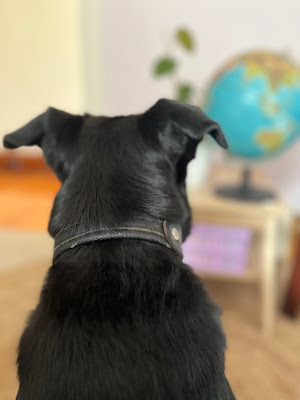Transforming the energy in traumatized urban spaces: Urban Alchemy.
Back in Australia, I am writing up my Churchill Report which will include lots of case studies. Here is one of them - a social enterprise that works with formally incarcerated people to build up troubled community locations. It is alchemy, and something that we could use in Australia. Many thanks to Jeff Kositsky and his amazing colleagues at Urban Alchemy in San Francisco.
***
Transforming the
energy in traumatized urban spaces: Urban Alchemy.
The
Tenderloin district in San Francisco is known as place of poverty and
homelessness. Sitting right up against the city's civic centre and wealthy
inner-city areas, it forms much of the reputation that San Francisco holds as
being a place of deep economic contrasts and high homelessness rates.
Walking
into the Tenderloin, streetscapes change quickly. Rundown apartment buildings
and security bars on shops. A couple of parks with new children's play
equipment have tall gates and people employed to greet entrants - and probably
keep others out. People gather all along the streets, some with a few goods to
sell in front of them, others talking in groups or sitting alone.
My meeting with the Department of Homelessness and Supportive Housing is at their offices in the Tenderloin. The entrance has a high fence. Security guards sitting behind the glass doors move me along without an option to speak my case when it turns out that the person I am meeting has not left my name at the door.
But
along the street, there are some smiling faces, people dressed in black with
Urban Alchemy written in bright green across their backs. It looks like there
are a few of them at every intersection and some outside public
restroom facilities dotted in places. They are standing
around, a few are talking to people or amongst themselves. A couple catch my
eye, giving me a nod as I walk past.
The
reality is, I feel much safer walking alone here than in a number of other
neighbourhoods I have visited in the United States. And the lack of police
presence and security guards definitely contributes to this, rather than making
it feel unsafe.
Jeff
Kositsky used to head up San Francisco's Department of Homelessness and
Supported Housing. He set the whole agency up. "I don’t regret doing
it'" he said, reflecting on the challenges and successes. "But it was
probably the worst five years of my life."
While
he was in his government job, Jeff worked with Urban Alchemy (UA) to establish
street cleaning, hygiene services, community engagement, and transitionary
housing. He is now Urban
Alchemy's chief growth officer, working on national expansion of the UA
model, organizational development, and fundraising.
"I
contracted UA when I worked for the city. No one else would do the stuff they
were willing to try. The quality and willingness of the people who work here is
what makes the difference", he said.
The Urban Alchemy model is unique. Conceived by Lena Miller and Bayron Wilson, who grew up in the same, tough neighbourhood in the San Francisco area. Bayron served a long sentence in prison. Lena went on to get a doctorate in psychology.
UA
is a social enterprise that captures the knowledge and skills of people
formally incarcerated for 15 years or more - effectively life sentences - who
come out of the prison system with relatively few opportunities available to
them. The program provides more than 40 hours of training and above minimum
wage jobs, capitalising on the skills that a formally incarcerated person may
have - education, emotional intelligence, an ability to deal with traumatised
people and places.
Urban
Alchemy is contracted in San Francisco and at other locations in the US to
deliver four core services[1]
1. Community Engagement and Outreach: calming
neighborhoods and public spaces by forming bonds with residents, promoting
positive behavior, and connecting people to services; this work includes
placing outreach workers and community engagement specialists in neighborhoods
as well as providing first-responders to non-emergency 911 calls related to homelessness,
mental health, and addiction
2. Interim Housing: operating
safe camping, safe parking, tiny homes, hotels, and other types of
client-centered, low-barrier alternatives to sleeping in public spaces
3. Hygiene Services: providing
and monitoring safe, clean, and welcoming public bathrooms and mobile showers
that offer dignity to those in need while improving public health
4. Street Cleaning: removing
garbage and debris from streets and other public spaces, restoring a sense of
pride to neglected communities
"Being
formally incarcerated and getting a pretty good education, I have never seen
anything done on this scale", said Mr Wilson. We are giving opportunity to
people with lived experience. Working with human lives and people on the
street. Who better to do this than someone who has gone through it?"
"The
approach in the Tenderloin is around community and safety. People are customed
to seeing men and women on the corner doing something unsafe. To see someone on
the side of the street saying good morning and with a smile is very
different.
"That
person, once upon the time, may have continued to hold the negative opinion of
the community. But you have an opportunity to turn that around. A base
metal into gold - that’s the alchemy."
It is well worth
visiting the Urban Alchemy website to learn more about their approach. This video is
also a great way of seeing their work in action: https://urban-alchemy.us/








Comments
Post a Comment